Discover Stoicism: Philosophy as a Way of Life Podcast
Stoicism: Philosophy as a Way of Life Podcast

Stoicism: Philosophy as a Way of Life Podcast
Author: Donald J. Robertson
Subscribed: 171Played: 3,004Subscribe
Share
© Donald J. Robertson
Description
Donald Robertson, the author of "How to Think Like a Roman Emperor", and a cognitive-behavioral therapist, talks about how to apply Stoicism in the modern world, discussing philosophy, psychology and self-improvement with guests from all walks of life. Available on Google and Apple podcasts.
donaldrobertson.substack.com
donaldrobertson.substack.com
67 Episodes
Reverse
This episode features guest hosts Dr. Scott Waltman and Kasey Pierce, authors of the forthcoming book The Rescuer Trap. It’s time to rejoin the pack, lone wolf, and bring your newfound healthy boundaries with you. Scott and Kasey unpack Maladaptive Overcorrection and how to find the middle path of flexibility and true, healthy Interdependence.Are you the fixer, the over-giver, the emotional first responder for everyone but yourself? Welcome to The Rescuer Trap. We playfully own the labels “Parentified and Codependent” to make a point: these are not identities, but learned behaviors.And what can be learned can be unlearned. Hosts Dr. Scott Waltman and Kasey Pierce use Stoic philosophy and CBT to give you the tools to break the cycle and reclaim your autonomy. Your escape from the trap starts here. Based on the forthcoming book, The Rescuer Trap (New Harbinger).Thanks for reading Stoicism: Philosophy as a Way of Life! This post is public so feel free to share it. Get full access to Stoicism: Philosophy as a Way of Life at donaldrobertson.substack.com/subscribe
This episode features guest hosts Dr. Scott Waltman and Kasey Pierce, authors of the forthcoming book The Rescuer Trap. In this Sci-not-so-Fi episode, they talk about the dangers of emotional dependency on AI and Socrates asks “What is a boyfriend?” Are you the fixer, the over-giver, the emotional first responder for everyone but yourself? Welcome to The Rescuer Trap. We playfully own the labels “Parentified and Codependent” to make a point: these are not identities, but learned behaviors.And what can be learned can be unlearned. Hosts Dr. Scott Waltman and Kasey Pierce use Stoic philosophy and CBT to give you the tools to break the cycle and reclaim your autonomy. Your escape from the trap starts here. Based on the forthcoming book, The Rescuer Trap (New Harbinger).Thanks for reading Stoicism: Philosophy as a Way of Life! This post is public so feel free to share it. Get full access to Stoicism: Philosophy as a Way of Life at donaldrobertson.substack.com/subscribe
This episode features guest hosts Dr. Scott Waltman and Kasey Pierce, authors of the forthcoming book The Rescuer Trap. Dr. Jeff Perron joins us to explore the deep-seated schemas (like Self-Sacrifice and Subjugation) that create the “Rescuer Trap.” We discuss how these unconscious, childhood-rooted patterns conflict with your adult values, and provide insight on using a schema-informed approach to establish boundaries and finally break free from the cycle of people-pleasing. Follow Dr. Perron on Substack: Are you the fixer, the over-giver, the emotional first responder for everyone but yourself? Welcome to The Rescuer Trap. We playfully own the labels “Parentified and Codependent” to make a point: these are not identities, but learned behaviors.And what can be learned can be unlearned. Hosts Dr. Scott Waltman and Kasey Pierce use Stoic philosophy and CBT to give you the tools to break the cycle and reclaim your autonomy. Your escape from the trap starts here. Based on the forthcoming book, The Rescuer Trap (New Harbinger).Thanks for reading Stoicism: Philosophy as a Way of Life! This post is public so feel free to share it. Get full access to Stoicism: Philosophy as a Way of Life at donaldrobertson.substack.com/subscribe
Thank you Beth Pagano, Ann Cronin, Kevin White, Marcos, BCz, and many others for tuning into my live video with Kyle Shepard! Join me for my next live video in the app.Stoicism: Philosophy as a Way of Life is a reader-supported publication. To receive new posts and support my work, consider becoming a free or paid subscriber.Thanks for reading Stoicism: Philosophy as a Way of Life! This post is public so feel free to share it. Get full access to Stoicism: Philosophy as a Way of Life at donaldrobertson.substack.com/subscribe
This episode features guest hosts Dr. Scott Waltman and Kasey Pierce, authors of the forthcoming book The Rescuer Trap. Strangers get weird on Scott when he attempts to exorcise their sadness with an old painting while Kasey runs away with the invisible idealized man... again. Are you the fixer, the over-giver, the emotional first responder for everyone but yourself? Welcome to The Rescuer Trap. We playfully own the labels “Parentified and Codependent” to make a point: these are not identities, but learned behaviors.And what can be learned can be unlearned. Hosts Dr. Scott Waltman and Kasey Pierce use Stoic philosophy and CBT to give you the tools to break the cycle and reclaim your autonomy. Your escape from the trap starts here. Based on the forthcoming book, The Rescuer Trap (New Harbinger).Thanks for reading Stoicism: Philosophy as a Way of Life! This post is public so feel free to share it. Get full access to Stoicism: Philosophy as a Way of Life at donaldrobertson.substack.com/subscribe
In this episode, I chat with Commander William C. Spears. William is a submarine warfare officer in the United States Navy, and author of the upcoming book Stoicism as a Warrior Philosophy. He enlisted in the Navy in June 2001, then earned his commission through the United States Naval Academy in Annapolis. He has since led a career in nuclear submarines, where he was most recently the second-in-command of a ballistic missile submarine. Today he works at the Pentagon in Washington, D.C.Stoicism: Philosophy as a Way of Life is a reader-supported publication. To receive new posts and support my work, consider becoming a free or paid subscriber.Highlights* Tell us a little about your background, and how you became interested in Stoicism.* Why should the military take note of Stoicism?* What do you mean when you say that Stoicism is a warrior philosophy?* How can warfare have anything to do with virtue?* Is your book, Stoicism as a Warrior Philosophy, more of an academic work or is it written for a general audience?* What are some ways in which your book advances the conversation about Stoicism?Links* Stoicism as a Warrior Philosophy* Amazon Listing* William C. Spears’ WebsiteThanks for reading Stoicism: Philosophy as a Way of Life! This post is public so feel free to share it. Get full access to Stoicism: Philosophy as a Way of Life at donaldrobertson.substack.com/subscribe
This episode features guest hosts Dr. Scott Waltman and Kasey Pierce, authors of the forthcoming book The Rescuer Trap. Scott serves up a heapin’ helping of downhome ‘parentification’. We’re also talking about those labor=love moments that lead to leering at those couch-bound oxygen thieves, regretting that you never asked for help. Are you the fixer, the over-giver, the emotional first responder for everyone but yourself? Welcome to The Rescuer Trap. We playfully own the labels “Parentified and Codependent” to make a point: these are not identities, but learned behaviors.And what can be learned can be unlearned. Hosts Dr. Scott Waltman and Kasey Pierce use Stoic philosophy and CBT to give you the tools to break the cycle and reclaim your autonomy. Your escape from the trap starts here. Based on the forthcoming book, The Rescuer Trap (New Harbinger).Thanks for reading Stoicism: Philosophy as a Way of Life! This post is public so feel free to share it. Get full access to Stoicism: Philosophy as a Way of Life at donaldrobertson.substack.com/subscribe
This episode features guest hosts Dr. Scott Waltman and Kasey Pierce, authors of the forthcoming book The Rescuer Trap. Scott and Kasey discuss the trouble with mistaking preferences for values. Also, why we can’t use sacrificing our values as a bargaining chip, call it a forced wager, and blame the house for our “lost investment” when the relationship goes bust. Are you the fixer, the over-giver, the emotional first responder for everyone but yourself? Welcome to The Rescuer Trap. We playfully own the labels “Parentified and Codependent” to make a point: these are not identities, but learned behaviors.And what can be learned can be unlearned. Hosts Dr. Scott Waltman and Kasey Pierce use Stoic philosophy and CBT to give you the tools to break the cycle and reclaim your autonomy. Your escape from the trap starts here. Based on the forthcoming book, The Rescuer Trap (New Harbinger).Thanks for reading Stoicism: Philosophy as a Way of Life! This post is public so feel free to share it. Get full access to Stoicism: Philosophy as a Way of Life at donaldrobertson.substack.com/subscribe
In this episode, my guest is Robert Garland, a British classical philologist and historian who is the Roy D. and Margaret B. Wooster Professor of the Classics at Colgate University. He is the author of numerous works on ancient Greek and Roman history, including The Greek Way of Death and Daily Life of the Ancient Greeks. His most recent book, however, is What to Expect When You're Dead: An Ancient Tour of Death and the Afterlife.Stoicism: Philosophy as a Way of Life is a reader-supported publication. To receive new posts and support my work, consider becoming a free or paid subscriber.Highlights* In your research, what most surprised you about how ancient cultures looked at death?* What do we gain by thinking about death? For example, a central Stoic practice is called memento mori—reflecting on one’s mortality. They think wrapping our heads around death can help us to live more wisely, do you agree?* Your book examines beliefs from Greeks, Romans, Egyptians, and Mesopotamians. Are there any common factors? What are the biggest differences between them?* Did groups within these cultures who faced death more frequently, such as soldiers or perhaps Roman gladiators, have a different perspective on death?* How did ordinary Greeks and Romans differ in their beliefs from the sort of thing we find in the writings of ancient philosophers? To what extent did philosophical views influence popular culture?* Many people today turn to philosophy, and Stoicism in particular, to regain a sense of control in uncertain times. In a world where so much was attributed to fate or the gods, how did the contemplation of their own mortality console people facing hardship and loss?* Has your own attitude toward death changed as a result of your research?Links* Goodreads ProfileThanks for reading Stoicism: Philosophy as a Way of Life! This post is public so feel free to share it. Get full access to Stoicism: Philosophy as a Way of Life at donaldrobertson.substack.com/subscribe
This episode features guest hosts Dr. Scott Waltman and Kasey Pierce, authors of the forthcoming book The Rescuer Trap. Scott and Kasey discuss the forthcoming virtual event for Plato’s Academy Centre and its featured speakers. They also talk values chameleons: taking on the shade of your partner to ensure the survival of the relationship. Stoicism: Philosophy as a Way of Life is a reader-supported publication. To receive new posts and support my work, consider becoming a free or paid subscriber.Are you the fixer, the over-giver, the emotional first responder for everyone but yourself? Welcome to The Rescuer Trap. We playfully own the labels “Parentified and Codependent” to make a point: these are not identities, but learned behaviors.And what can be learned can be unlearned. Hosts Dr. Scott Waltman and Kasey Pierce use Stoic philosophy and CBT to give you the tools to break the cycle and reclaim your autonomy. Your escape from the trap starts here. Based on the forthcoming book, The Rescuer Trap (New Harbinger).Thanks for reading Stoicism: Philosophy as a Way of Life! This post is public so feel free to share it. Get full access to Stoicism: Philosophy as a Way of Life at donaldrobertson.substack.com/subscribe
In this episode, I chat with father-son team Matthew and Matteo Storm, who host the Lost Roman Heroes podcast, a bi-weekly dive deep into the overlooked lives and legacies of ancient Rome. They’re history buffs with a passion for ancient Rome. Matthew is also the author of several works of historical fiction, based in the Roman empire, the most recent being THE EMPEROR: Heraclius Battles Persia for the Life of Rome.Stoicism: Philosophy as a Way of Life is a reader-supported publication. To receive new posts and support my work, consider becoming a free or paid subscriber.Highlights* How did the Lost Roman Heroes podcast begin?* Travel to Carnuntum and other historic locations.* Matthew’s historical fiction set in the Roman empire* What are your favourite quotes from the Meditations of Marcus Aurelius?* How can we be sure Marcus actually wrote the Meditations? * Was it intended for publication?* Why are Hadrian and Herodes Atticus notable by their absence from the list of people Marcus admires in Book One of the Meditations?* Was it really a bad idea for Marcus to appoint Commodus his successor? * Who was Avidius Cassius, the usurper?* Was Faustina the loyal wife Marcus makes her out to be or the scheming and unfaithful one depicted in the histories?Links* Lost Roman Heroes Website * Lost Roman Heroes Podcast* Matthew’s Books Thanks for reading Stoicism: Philosophy as a Way of Life! This post is public so feel free to share it. Get full access to Stoicism: Philosophy as a Way of Life at donaldrobertson.substack.com/subscribe
Thank you Rageforthemachine, Angel, Kevin White, Billy Shebar, Paul Mulcahy, and many others for tuning into my live video with Caleb and Michael! Join me for my next live video in the app.Stoicism: Philosophy as a Way of Life is a reader-supported publication. To receive new posts and support my work, consider becoming a free or paid subscriber.Thanks for reading Stoicism: Philosophy as a Way of Life! This post is public so feel free to share it. Get full access to Stoicism: Philosophy as a Way of Life at donaldrobertson.substack.com/subscribe
In this episode, my guest is Carlos Garcia. Carlos is the Co-Founder and CEO of True Progress Lab, a coaching company that operates on the motto 'Get Calm. Get Bold. Get After It'. He is also a Major and Judge Advocate in the U.S. Army Reserve, and an Army-certified Master Resilience Trainer.Highlights* Carlos, you have a fascinating background—an attorney, a Major and Judge Advocate in the U.S. Army Reserve, and a high-performance coach. How did your experiences in these high-stakes environments lead you to focus on resilience and coaching?* You're an Army-certified Master Resilience Trainer. What are the core principles the military teaches for handling adversity? * Are there overlaps with ancient Stoic philosophy?* How do you think the army’s resilience training could be improved?* You mentioned that reading about Stoicism and Marcus Aurelius has been "instrumental" in shaping your philosophy. Which of his ideas resonated most deeply with you, and how do you see them applying to a modern leader or soldier?* Your flagship course is called The Inner Fortress, can you tell us a bit about that?* A key focus of your coaching is overcoming FOPO, or the "fear of people's opinions". Why do you find this specific fear is such a powerful inhibitor for the successful professionals you work with?* You use a unique blend of Stoic philosophy and exposure therapy to help clients. Could you walk us through how you combine an ancient philosophy with a modern therapeutic technique to help someone act more boldly?* Finally, based on your experience, what do you think are some of the most helpful pieces of advice you can pass on to our listeners? Stoicism: Philosophy as a Way of Life is a reader-supported publication. To receive new posts and support my work, consider becoming a free or paid subscriber.Links* Web: trueprogresslab.comThanks for reading Stoicism: Philosophy as a Way of Life! This post is public so feel free to share it. Get full access to Stoicism: Philosophy as a Way of Life at donaldrobertson.substack.com/subscribe
In this episode, I chat with Harry Sidebottom. Harry is a Lecturer in Ancient History at Lincoln College, Oxford. He is the bestselling author of fifteen historical novels, and nineteen books in total. His debut trade non-fiction book, The Mad Emperor: Heliogabalus and the Decadence of Rome, was a Book of the Year in the Spectator, the Financial Times and BBC History. His latest book, Those Who Are About to Die: A Day in the Life of a Roman Gladiator is published in the UK on the 28th Aug, and in the US later next year.Stoicism: Philosophy as a Way of Life is a reader-supported publication. To receive new posts and support my work, consider becoming a free or paid subscriber.Highlights* Gladiators capture the public imagination but what did you want to explore the Roman mindset by focusing on them? * What does the institution of gladiatorial games tell us about Roman views on life and death?* What do you think it may surprise your readers to learn about the world of the gladiators?* What are the differences between the fighting skills of a gladiator and a legionary? * What were the strangest animals they fought or hunted in the arenas? * As a historian who has deeply studied the Roman mind, what have you learned about their core values? And how do you think those compare to our modern sensibilities?* From your research, what can the Romans teach us about resilience in the face of adversity? Links* Those Who Are About to Die (Penguin)* Goodreads Author ProfileThanks for reading Stoicism: Philosophy as a Way of Life! This post is public so feel free to share it. Get full access to Stoicism: Philosophy as a Way of Life at donaldrobertson.substack.com/subscribe
In this episode, I chat with Shermin Kruse. Shermin is a globally recognized negotiation consultant, law professor at Northwestern University’s Pritzker School of Law, and TEDx producer. She is the author of the recently published book Stoic Empathy: The Road Map to a Life of Influence, Self-Leadership, and Integrity. We discuss empathy and how it can be combined with Stoic resilience to help us maintain our compassion while avoiding burnoutStoicism: Philosophy as a Way of Life is a reader-supported publication. To receive new posts and support my work, consider becoming a free or paid subscriber.Highlights* How did you become interested in Stoicism?* What is Stoic Empathy – and how does it differ from unhelpful forms of empathy?* What are the most common misconceptions about empathy that you encounter?* What’s the relationship between empathy and anger in your view?* In your book, you discuss why traditional models of compassion might fall short. * From your perspective, what are the key limitations of these models, and what does neuroscience reveal about why a different approach might be necessary?* What tools do you recommend for people who want to maintain healthy empathy and compassion?* How can we face injustice and suffering in the world without shutting down or freaking out?Links* Stoic Empathy on Amazon * Shermin Kruse’s Website Thanks for reading Stoicism: Philosophy as a Way of Life! This post is public so feel free to share it. Get full access to Stoicism: Philosophy as a Way of Life at donaldrobertson.substack.com/subscribe
In this episode, I talk with Raymond DiGiuseppe, Professor of Psychology at St. John’s University and Director of Professional Education at the Albert Ellis Institute. Professor DiGiuseppe is a renowned figure in the field of cognitive-behavioral therapy, particularly Rational Emotive Behavior Therapy (REBT). He’s also done extensive work on anger. This is a special episode in which we take a deep dive into the Stoic anger management strategies described in the Meditations of Marcus Aurelius. How valuable are these ancient strategies when viewed from the perspective of modern evidence-based psychotherapy.Stoicism: Philosophy as a Way of Life is a reader-supported publication. To receive new posts and support my work, consider becoming a free or paid subscriber.Highlights* The Stoic theory of anger as a “desire for revenge”* Avoid mind-reading: “[When getting offended:] remember that you can’t be sure that they are doing wrong, because many actions serve some other purpose. Generally speaking, a great deal of experience is needed before one can confidently express an opinion about what someone else is doing.”* Consider the whole character: “Remember how they behave while eating, while reclining on their couches, and so on, and most importantly how their beliefs leave them no choice, and how they pride themselves on what they do.”* Attribute actions to ignorance rather than malice: “For no soul is voluntarily deprived of the truth and by the same token no soul is voluntarily deprived of the ability to [judge the worth of things properly]. Indeed, people don’t like to be called unjust, discourteous, and avaricious, or, in general, to be thought of as someone likely to wrong their neighbors.”* Contemplate impermanence: “When you’re too angry or impatient, remember that human life is fleeting and before long all of us will have been laid to rest.”* Cognitive distancing: “Remember that it is not people’s actions that disturb us (because their actions are [their own business]), but our opinions of their actions. At any rate, eliminate the judgment that they’re doing something hurtful, and be willing to let go of it, and anger comes to an end.”* Anger does us more harm than the things we’re angry about: “Remember that we suffer more from getting angry and upset about such things than we do from the things themselves.”* Kindness and other virtues can replace anger: “Remember that kindness is unconquerable if it’s genuine, not phony or feigned. After all, what can even the most abusive person in the world do to you if you keep on being kind to him and, if the opportunity arises, gently offer him advice and take the time to show him the error of his ways right when he’s trying to do you harm?”* Recognize your own flaws: “Remember that you yourself often do wrong and are no better than them. Even if you refrain from certain kinds of transgressions, you still have the capacity to commit them.”* Do not demand perfection from others: “[And you can accept a tenth gift, from Apollo, the Leader of the Muses:] the proposition that it’s insanity to expect flawed men never to do wrong, because that would be desiring the impossible..”* Remember, nature gave you the potential to overcome anger and conflict: “First, remember the various kinds of relationship I have with [others]: we were born to help one another.”* Are there other relevant attitudes that Marcus Aurelius doesn’t mention?Links* Profile at St John’s University* Profile at the Albert Ellis Institute* Google Scholar ProfileThanks for reading Stoicism: Philosophy as a Way of Life! This post is public so feel free to share it. Get full access to Stoicism: Philosophy as a Way of Life at donaldrobertson.substack.com/subscribe
Donald speaks with Matthew Gindin, writer, editor, and former Buddhist monk. We talk about Buddhist teachings on anger and the parallels between Buddhist and Stoic contemplative meditation practices. Stoicism: Philosophy as a Way of Life is a reader-supported publication. To receive new posts and support my work, consider becoming a free or paid subscriber.Thanks for reading Stoicism: Philosophy as a Way of Life! This post is public so feel free to share it. Get full access to Stoicism: Philosophy as a Way of Life at donaldrobertson.substack.com/subscribe
In this episode, I chat with Charif Ahmed of Study the Greats and Become Greater, about the Stoic approach to anger management found in Seneca’s On Anger.Links* Study the Greats and Become GreaterThanks for reading Stoicism: Philosophy as a Way of Life! This post is public so feel free to share it. Get full access to Stoicism: Philosophy as a Way of Life at donaldrobertson.substack.com/subscribe
Thank you The Plato's Academy Centre, Adam PT, Diane Kalen-Sukra, EHL, VeneerOfCivility, and many others for tuning into my live video with Anya Leonard of Classical Wisdom, discussing anger! Join me for my next live video in the Substack app.Stoicism: Philosophy as a Way of Life is a reader-supported publication. To receive new posts and support my work, consider becoming a free or paid subscriber.You can register free of charge for the Philosophy and Psychology of Anger event on Saturday via the link below.Thanks for reading Stoicism: Philosophy as a Way of Life! This post is public so feel free to share it. Get full access to Stoicism: Philosophy as a Way of Life at donaldrobertson.substack.com/subscribe
In this episode, I chat with Windy Dryden. Windy is Emeritus Professor of Psychotherapeutic Studies at Goldsmiths in the University of London. He has been working in the field of psychotherapy since 1975, and was one of the first people in Britain to be trained in Cognitive Behavior Therapy (CBT). He learned from pioneers such as Albert Ellis, Aaron T. Beck and Arnold Lazarus, among others. He is a very influential figure in the field himself, best-known as the UK’s leading expert on Rational-Emotive Behavior Therapy (REBT). In a career spanning almost half a century, he has worked with thousands of clients, trained countless students, and written or edited 285 books on psychotherapy. Stoicism: Philosophy as a Way of Life is a reader-supported publication. To receive new posts and support my work, consider becoming a free or paid subscriber.Highlights* What was different when you first began studying psychotherapy in the 1970s?* Do you think anything was done better in the past?)* In a nutshell, what is Rational Emotive Behavior Therapy?* What the relationship is between REBT and CBT.* What is single-session therapy?* What information do you need to get from the client to make this approach work?* Do you ask clients to do preparatory work before the session or homework afterwards?* How can REBT help with anger?* How do we distinguish healthy from unhealthy anger?* What’s the simplest bit of good advice, in your view, that could be given to people struggling with anger?Links* Website: windydryden.com* Amazon Author ProfileThanks for reading Stoicism: Philosophy as a Way of Life! This post is public so feel free to share it. Get full access to Stoicism: Philosophy as a Way of Life at donaldrobertson.substack.com/subscribe


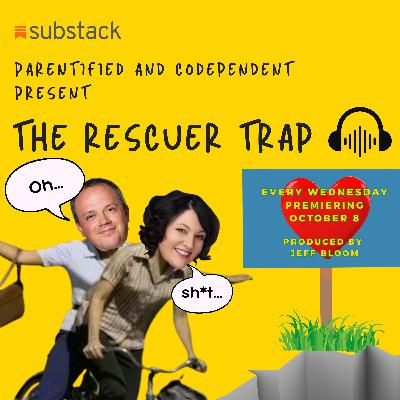
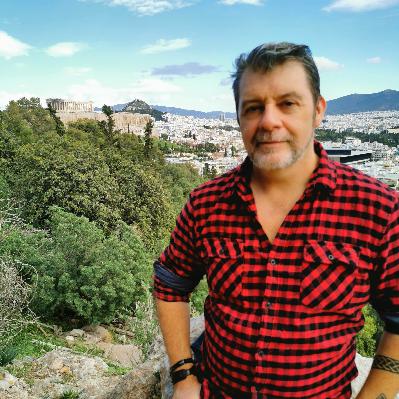

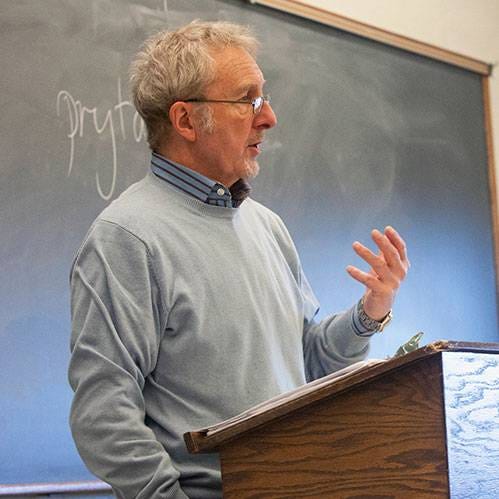
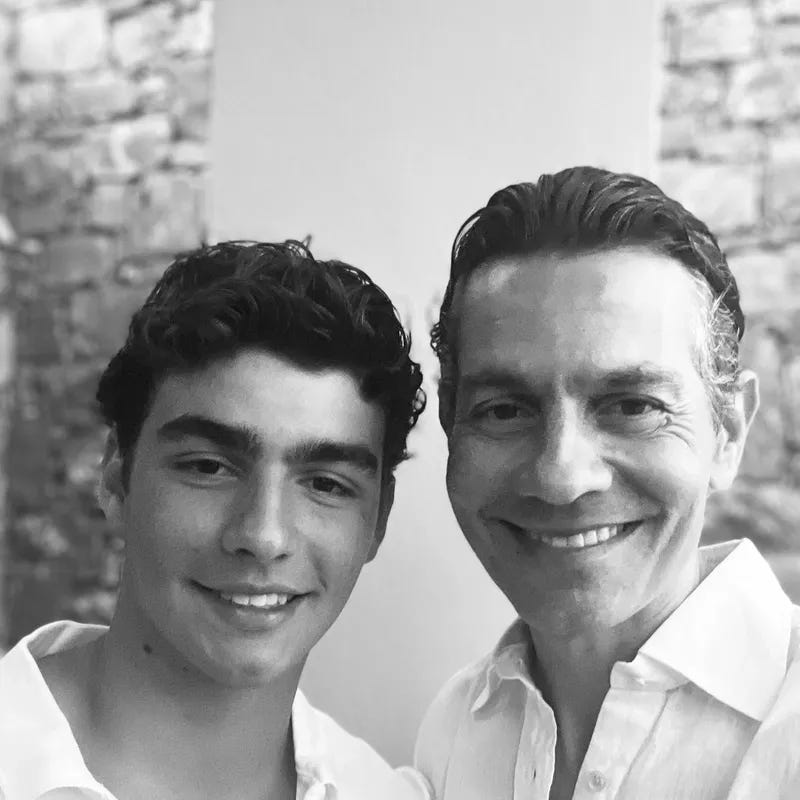
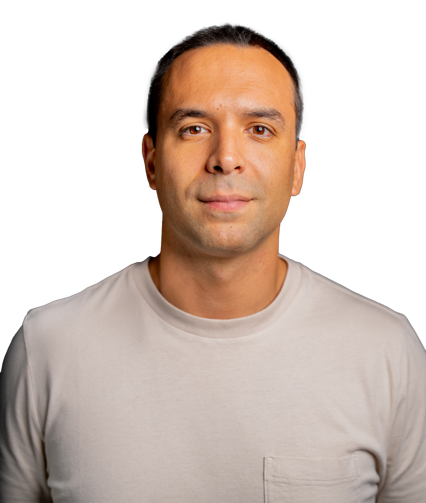




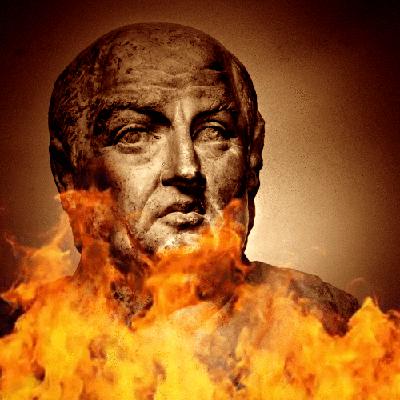





An excellent and directly useful episode, thank you.